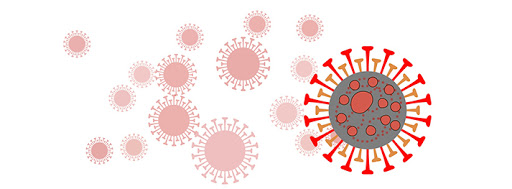If you are already open to CCAMHS
If you are currently a patient open to CCAMHS, you will still be able to access the service for support. However, the way to do this has, temporarily, changed. As you are probably already aware, the clinic is closed to service users; we are not doing any face-to-face appointments; at the clinic, at homes or out in the community. If a situation is deemed urgent and requiring face-to-face contact, this will be dealt with by the team on a case-by-case basis. Therefore, the vast majority of our work will for now be completed via telephone or video calls.
If you have an allocated clinician, they should be in touch with you soon to arrange on-going telephone or video call appointments with you. Your allocated clinician will support you with accessing our video call programme, which is a specialist programme for the NHS and service-users, and so secure and safe to use. If you have any questions, feel free to ask!
If you have not heard from your allocated clinician yet and need to speak to someone, please call the CCAMHS clinic on 01983 523602. We will still be answering calls to this number, and if your allocated clinician is not available, another clinician will be able to offer guidance.
If you do not have an allocated clinician, and are for example on a waiting list, you are able to telephone the clinic for support as well. There will be a qualified clinician allocated each day to taking phone calls from people with urgent enquiries or concerns.
If you are not open to CCAMHS, but wish to be referred
We have had to make some temporary changes to our referrals process, and the support we can offer during the Covid-19 pandemic. The service we can provide currently is limited, we hope to be able to resume normal service as soon as we can!
If you have been open to CCAMHS, and discharged within the past 3 months, you are able to seek support directly (as usual). You can telephone the clinic on 01983 523602 for advice. What we can currently offer those recently discharged will be determined on a case-by-case basis; we cannot guarantee that service-users recently discharged will be offered ongoing support, for the time being.
Those who have not been open to CCAMHS before, or have been discharged more than 3 months ago, will need to be referred by a professional (for example a GP, staff member from school, pediatrician, or health visitor).
Right now, only those considered at risk of harm to self or others will be offered direct CCAMHS involvement. Any referrals that are received are being screened by qualified clinicians regularly. We are accepting referrals for high risk individuals, but we ask that, while our service is temporarily reduced due to Covid-19 government guidance, no referrals for routine or non-urgent patients are sent to us. If we receive any referrals which are not urgent, we will offer sign-posting to other services or self-help resources, but will not be accepting the referral at the current time. If you are unsure of whether a case is urgent, please telephone the clinic on 01983 523602 to discuss with a clinician before sending a referral.
This plan for business continuity will be subject to regular checks and updates and may be altered at short notice if the situation or guidance changes. We will endeavour to update our service-users of any changes as soon as possible.
We apologise for the problems and inconvenience this current alteration to services may cause, but these are currently necessary precautions to ensure the safety of our staff and service-users. We appreciate your patience during this difficult period.
CONTACT DETAILS:
CCAMHS clinic telephone number (open 9-5 Monday to Friday): 01983 523602
Out of hours (for urgent support outside of the CCAMHS clinic opening times): 01983 522214
CCAMHS clinic email: iownt.spcamhs@nhs.net (for non-urgent enquiries)




